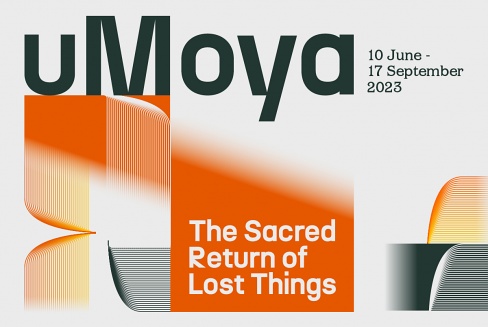Liverpool Biennial Programe for its 12TH Edition Opening in June

The 12th edition of Liverpool Biennial ‘uMoya: The sacred Return of Lost Things’ addresses the history and temperament of the city of Liverpool and is a call for ancestral and indigenous forms of knowledge, wisdom and healing. In the isiZulu language, ‘uMoya’ means spirit, breath, air, climate and wind.
The 12th edition of Liverpool Biennial ‘uMoya: The sacred Return of Lost Things’ addresses the history and temperament of the city of Liverpool and is a call for ancestral and indigenous forms of knowledge, wisdom and healing. In the isiZulu language, ‘uMoya’ means spirit, breath, air, climate and wind.
‘uMoya: The Sacred Return of Lost Things’ addresses the history and temperament of the city of Liverpool and is a call for ancestral and indigenous forms of knowledge, wisdom and healing. In the isiZulu language, ‘uMoya’ means spirit, breath, air, climate and wind.
Edgar Calel, Guadalupe Maravilla, and Lubaina Himid join the list of participating artists that includes Brook Andrew, Charmaine Watkiss, Gala Porras-Kim, Julien Creuzet, Raisa Kabir, Nicholas Galanin, Torkwase Dyson and Unmute Dance Theatre amongst others. A series of outdoor works will be installed across the city including a large-scale neon by Brook Andrew at Stanley Dock, an installation by Rudy Loewe at Liverpool ONE, and a major new sculptural work by Ranti Bam presented in St Nicholas Church Gardens.
Khanyisile Mbongwa, Curator, Liverpool Biennial 2023, said:
“We invite visitors to surrender to the currents of uMoya, to lend themselves to its flow, allowing the artists’ work to be a compass, guiding them through the Biennial. To enter the city of Liverpool as a site where something productive can happen, as the port city opens itself up to be excavated – laying bare its history of colonialism, role in the trade of enslaved people and the making of the British Empire.
The artists unpack catastrophe by engaging with histories of extraction (people, resources, objects); they re-read cartography by engaging with histories of mapping (trade, architecture, town planning, street naming, public sculptures and monuments); and propose healing by engaging with movements of undoing violence, ‘unholding’ the suffering and centering repair work. Finally, they turn to aliveness by engaging with the human right to be alive and live.”
Dr Samantha Lackey, Director, Liverpool Biennial, said:
“I believe that ‘uMoya: The Sacred Return of Lost Things’ will be a beautiful and deeply felt festival across the city - that will both connect to Liverpool’s colonial past but also uncover possibilities for repair, healing and joy in its future.
Khanyisile Mbongwa has brought together perspectives, thinking - and importantly - feeling, from across the globe which will help us see the world we are living in today from different viewpoints.
We look forward to welcoming regional, national and international visitors to the festival and are excited to expand our reach across the city centre this year, bringing Liverpool Biennial to the North Docks. We are grateful to our curator Khanyisile Mbongwa and our 2023 artists for their passion and imagination and are especially thankful to our partner venues and funders for their support in bringing the festival to life.
